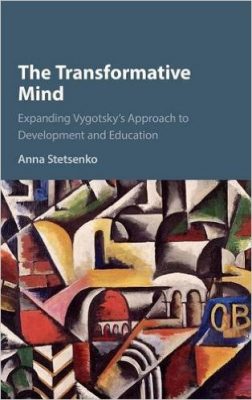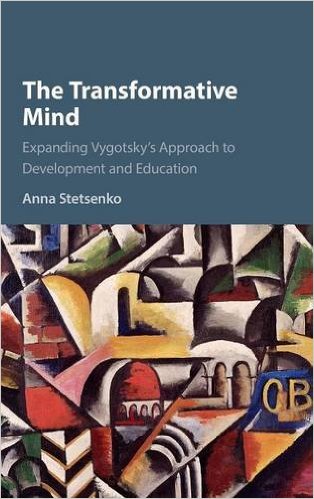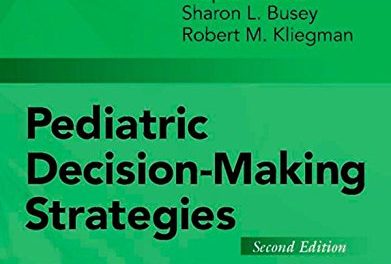 Author: Anna Stetsenko
Author: Anna Stetsenko
Publisher: Cambridge University Press – 421 pages
Book Review by: Sonu Chandiram
Lev Vygotsky, who lived between 1896 and 1934, was ranked third among the top 100 Soviet psychologists, after Ivan Pavlov and Alexander Luria, in the 2002 Review of General Psychology, according to a Wikipedia article. He was the founder of a theory (and later a specialty) in human cultural and bio-social development termed ‘cultural-historical psychology’
He asserted that play, especially in young children, is the leading source of emotional, social, physical, and language or cognitive development. He argued that the development of reasoning was mediated by signs and symbols, and therefore contingent on cultural practices and language as well as on universal cognitive processes.
The Wikipedia article states: “During his lifetime, Vygotsky’s ideas were controversial within the Soviet Union. As early as in the mid-1920s Vygotsky was introduced in the West where he remained virtually unknown until the early 1980s when the popularity of the developmental psychology of Jean Piaget (1896-1980) among educators started to decline and, in contrast, Vygotsky’s notion of the ‘zone of proximal development’ became a central component of the development of new paradigms in developmental and educational psychology.”
In this book the author Anna Stetsenko proposes “a transition from a relational worldview premised on the sociopolitical ethos of adaptation towards a transformative worldview premised on the ethos of solidarity and inequality.”
She expands on Vygotsky’s revolutionary project – the activist transformative stance to address the crisis of inequality. In this book, she integrates insights gathered from critical and sociocultural theories and pedagogies and moves beyond their impasse to create change: a ‘world-in-the-making’ created by a ‘sough-after-future,’ as she terms.
The contents of this book are laid out in eleven chapters and organized around four Parts as shown below as an overview:
Introduction: Setting the Stage. The Paradox of Continuity versus Change
- Part I
- Charting the Agenda: From Adaptation to Transformation
- Situating Theory: The Changes and Challenges of Theorizing Activism
- Part II
- Vygotsky’s Project: Methodology as the Philosophy of Method
- Vygotsky’s Project: Relational Ontology
- Vygotsky’s Project: From Relational Ontology to Transformative Worldview
- Part III
- Transformative Activist Stance: Ontology and Epistemology
- Transformative Activist Stance: Agency
- Transformative Activist Stance: Encountering the Future Through Commitment to Change
- Part IV
- The Mind That Matters
- Illustration: Memory and Anticipation of the Future
- Part V
- Implications for Education: Teaching Learning and Development As Activist Projects
Concluding Remarks: Toward Democracy and a Pedagogy of Daring
This is an insightful book on a sociopolitical philosophy that is relatively less known than others, and well worth examining with an open mind receptive to new worldviews. It is a unique contribution to understanding how people learn and develop individually, socially, and politically.
Author:
Anna Stetsenko, born in the former Soviet Union, is a developmental psychologist at the Graduate Center of the City University of New York. She is a researcher on the intersection of human development, education, and social theory. She deals with topics such as collective agency / action, identity, and subjectivity – all viewed through the lens of social change and activism.
She is recognized for contributions to sociocultural and activity theories around the world. Rooted in Vygotsky’s project, she has worked to advance it across several decades and international contexts bringing in experiences of teaching and researching at leading universities and research centers in Austria, Germany, Russia, Switzerland, and the United States.
She is widely published in several languages, With her interdisciplinary expertise in psychology, philosophy, and education and an international background, her writing cuts across many fields and connects cutting-edge developments and insights from a variety of frameworks.







